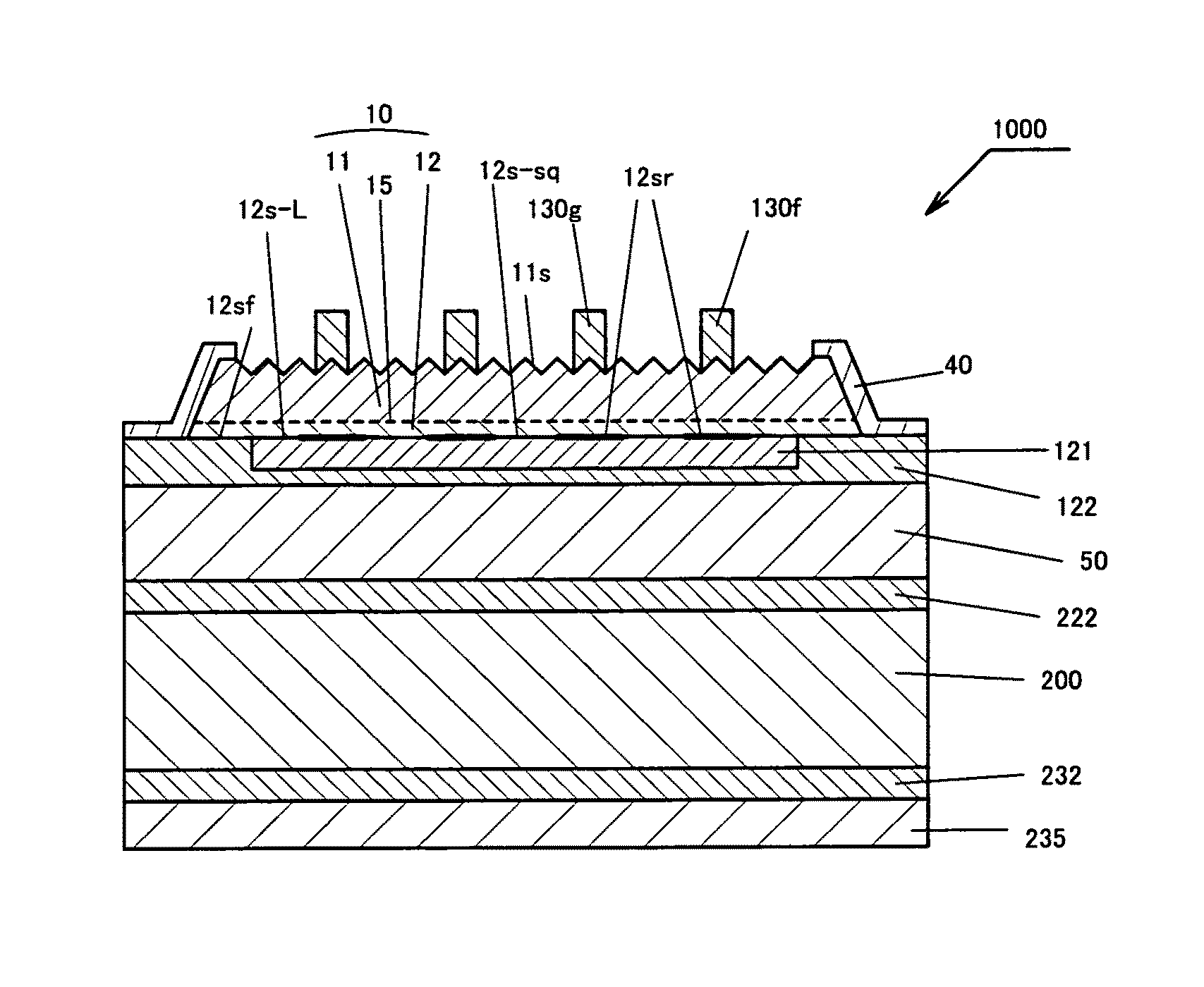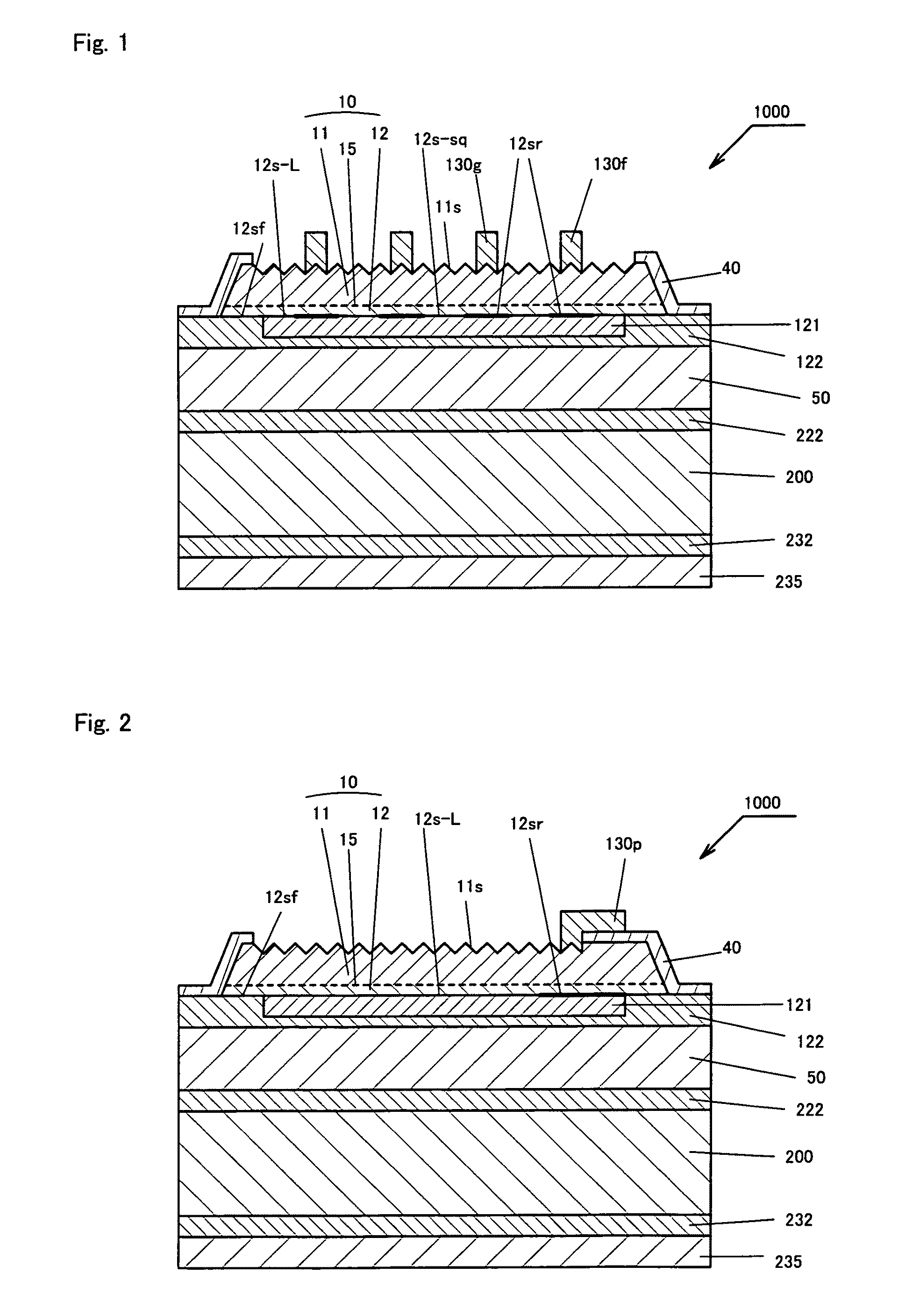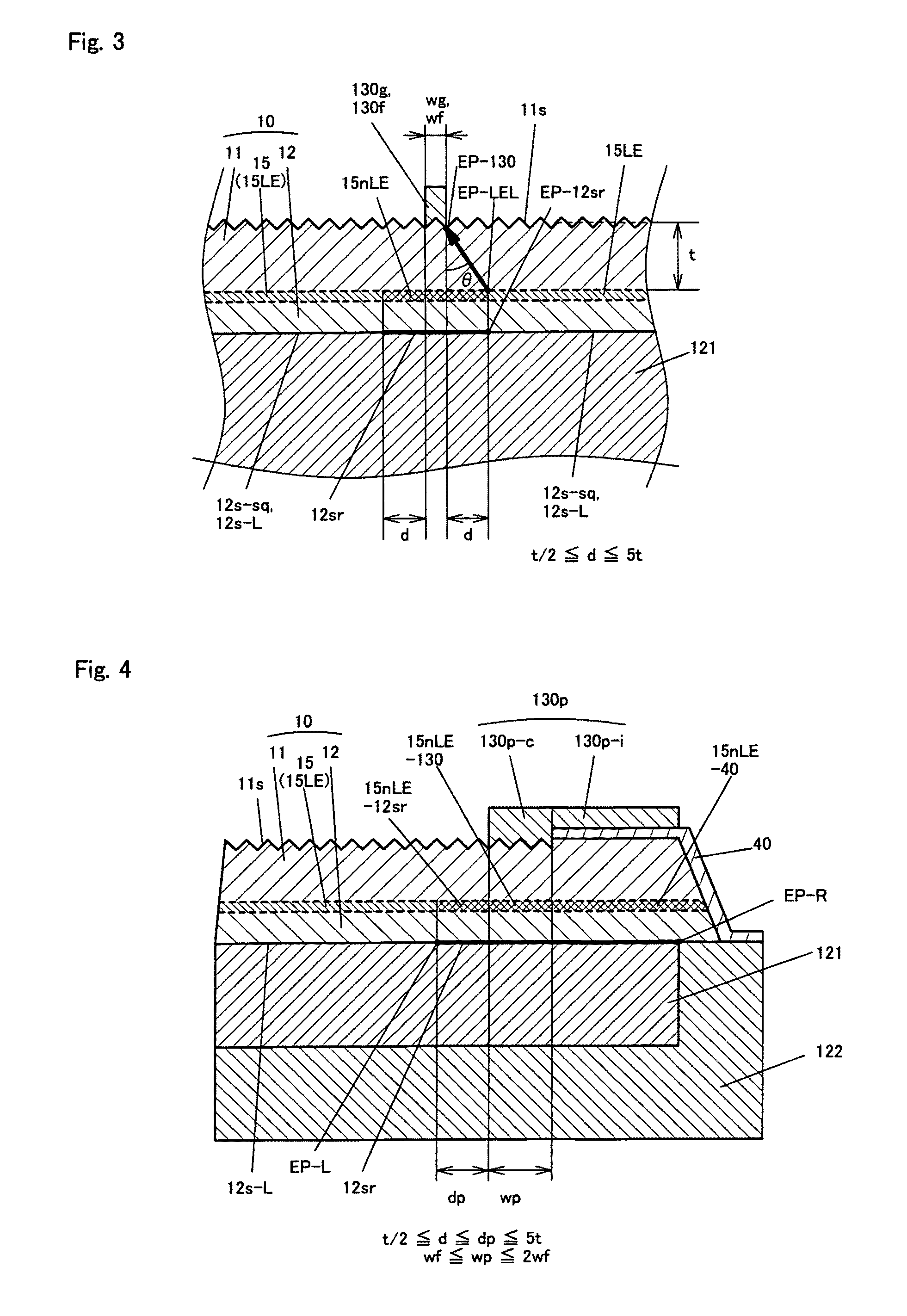Group III nitride-based compound semiconductor light-emitting device
a compound semiconductor and light-emitting device technology, applied in the direction of semiconductor devices, basic electric elements, electrical equipment, etc., to achieve the effect of lowering the output efficiency of ligh
- Summary
- Abstract
- Description
- Claims
- Application Information
AI Technical Summary
Benefits of technology
Problems solved by technology
Method used
Image
Examples
example 1
[0085]FIG. 1 is a cross-sectional view of the structure of a light-emitting diode (Group III nitride-based compound semiconductor light-emitting device) 1000 according to a specific example of the present invention, and FIG. 2 is another cross-sectional view of the light-emitting diode 1000. FIGS. 1 and 2 are cross-sectional views cut along line segments I-I and II-II, respectively, shown in FIG. 7 given hereinbelow.
[0086]The light-emitting diode 1000 shown in FIGS. 1 and 2 has a stacked structure having a p-type silicon substrate serving as a conductive support substrate 200 and, successively stacked on the support substrate 200, a conductive layer 222 formed of a plurality of stacked metal layers, a solder layer 50, a conductive layer 122 formed of a plurality of stacked metal layers, a p-contact electrode 121, a p-layer 12 formed mainly of a single layer or multiple layers of a p-type Group III nitride-based compound semiconductor, a light-emitting layer 15, an n-layer 11 formed ...
example 2
[0132]In Example 1, as shown in FIG. 5, the low-resistance face is divided by four belt-like areas of the high resistance face12sr each having a width of 35 μm into nine low-resistance faces 12s-sq. The four belt-like areas of the high-resistance face 12sr each having a width of 35 μm may be replaced by low-resistance areas. Example 2 shows this feature.
[0133]FIG. 8 is a plan view of a light-emitting diode 2000 according to Example 2, showing the arrangement, on the side of a p-layer 12, with which a p-contact electrode 121 is contacted, of a high-resistance face 12sr′, low-resistance faces 12s-sq′ and 12s-L, and an outer peripheral surface 12sf which is not in ohmic contact with the p-contact electrode 121. The configuration shown in FIG. 8 differs from that in FIG. 5 in that the low-resistance face 12s-sq′ is a single square area (460 μm×460 μm) and that there are no grid-like areas in the high-resistance face 12sr′. Other than the two features, the configuration shown in FIG. 8 i...
example 3
[0136]Example 3 is directed to a light-emitting device in which at least a portion of a micro-embossed surface 11s of an n-layer 11 is right over the low-resistance faces 12s-sq and 12s-L of the p-layer 12 is covered with a transparent dielectric layer. FIG. 11 is a cross-sectional view showing the configuration of a light-emitting diode 3000 according to Example 3. The light-emitting diode 3000 shown in FIG. 11 is based on the configuration of the light-emitting diode 1000 according to Example 1 shown in FIG. 1 to which a transparent dielectric layer 45 has been added. FIG. 12 is another cross-sectional view of the light-emitting diode 3000 according to Example 3, which is almost equivalent to the cross-sectional view of FIG. 2, as viewed from a position different from that of the light-emitting diode 1000 according to Example 1 shown in FIG. 1.
[0137]As shown in FIGS. 11 and 12, in the light-emitting diode 3000, at least a portion of the micro-embossed surface 11s of the n-layer 11...
PUM
 Login to View More
Login to View More Abstract
Description
Claims
Application Information
 Login to View More
Login to View More - R&D
- Intellectual Property
- Life Sciences
- Materials
- Tech Scout
- Unparalleled Data Quality
- Higher Quality Content
- 60% Fewer Hallucinations
Browse by: Latest US Patents, China's latest patents, Technical Efficacy Thesaurus, Application Domain, Technology Topic, Popular Technical Reports.
© 2025 PatSnap. All rights reserved.Legal|Privacy policy|Modern Slavery Act Transparency Statement|Sitemap|About US| Contact US: help@patsnap.com



